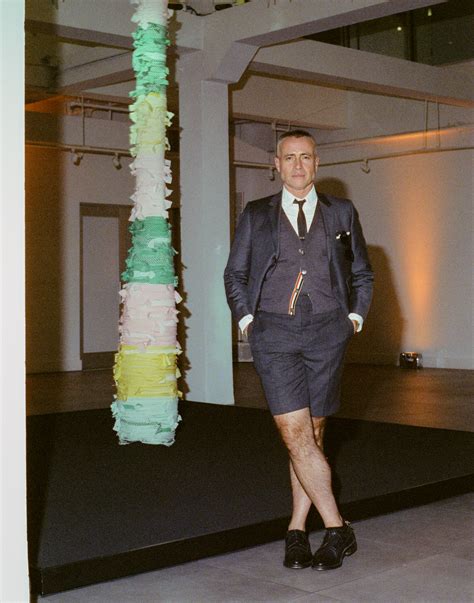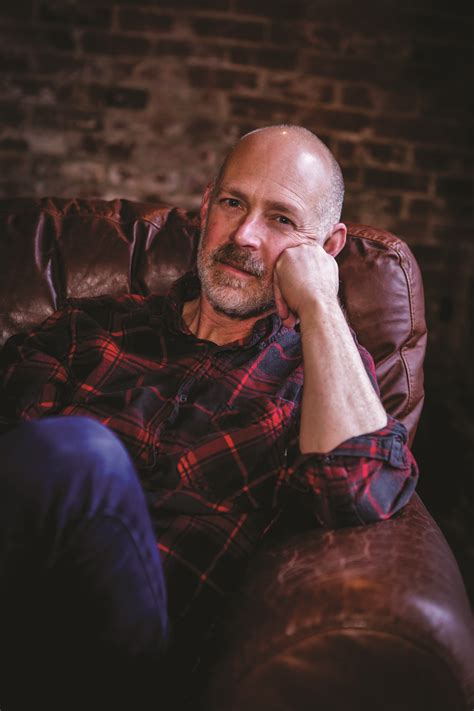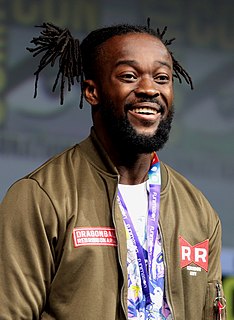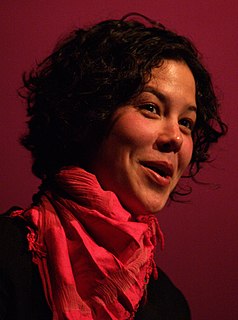A Quote by Barbara Crampton
Everybody can justify their actions. We all think that we're doing things for reasons that are meaningful to us. Maybe not to other people, but to us.
Related Quotes
As a designer, I'm supposed to be provoking people's reactions, and getting people to see things differently. I think more of us should be doing this. Because yeah, maybe guys are not gonna want to wear my stuff, but they'll think that they can maybe wear something a little bit more than what they've been wearing. That's the only way things move forward.
But who can foresee such things? None of us can predict the final outcomes of our actions, and few of us even try; most of us just do what we do to prolong a moment's pleasure or to stop the pain. And even when we act for the noblest reasons, the last link of the chain all too often drips with someone's blood.
When I was a boy, I would read those postcards and know exactly why my father was doing what he was doing: he was taking a stab at greatness, that is, if greatness is simply another word for doing something different from what you were already doing--or maybe greatness is the thing we want to have so that other people will want to have us, or maybe greatness is merely the grail for our unhappy, striving selves, the thing we think we need but don't and can't get anyway.
I think a lot of the reason people are attracted to the Keystone pipeline is because at least we're doing something. There's a fear that society will collapse if it's not acting. To contrast those actions with other actions is important in making it feel plausible. Maybe we must have the size of the dream meet the size of the threat.
There are dreams of love, life, and adventure in all of us. But we are also sadly filled with reasons why we shouldn't try. These reasons seem to protect us, but in truth they imprison us. They hold life at a distance. Life will be over sooner than we think. If we have bikes to ride and people to love, now is the time.
You know, 'people like us,' it involves... it's everybody who has struggled, you know what I'm saying? Everybody who has... who has had a difficult time getting to where they want to be, and now they can look at us as examples of, 'Hey, I can do this because they did it and I see it happening. Maybe I can do it, too.'
Frank Capra made a series of films during World War II called 'Why We Fight' that explored America's reasons for entering the war. Today, with our troops engaged in Iraq and elsewhere for reasons far less clear, I think it's crucial to ask the questions: 'Why are we doing what we are doing? What is it doing to others? And what is it doing to us?'
We have this desire for everything to be explained to us. But if you go through your daily actions, very little ends up having a written-down explanation for why things happen, or why people do specific things. So it made sense to me to reflect the human condition that not every action has an explanation. We act, and then later maybe come to an understanding about it, or maybe not.
In school you teach us not to fight with others, to work things out, to respect others, to clean up our mess, not to hurt other creatures, to share, not be greedy. Then why do you go out and do the things you tell us not to do? You grownups say you love us, but I challenge you, please, to make your actions reflect your words.



































